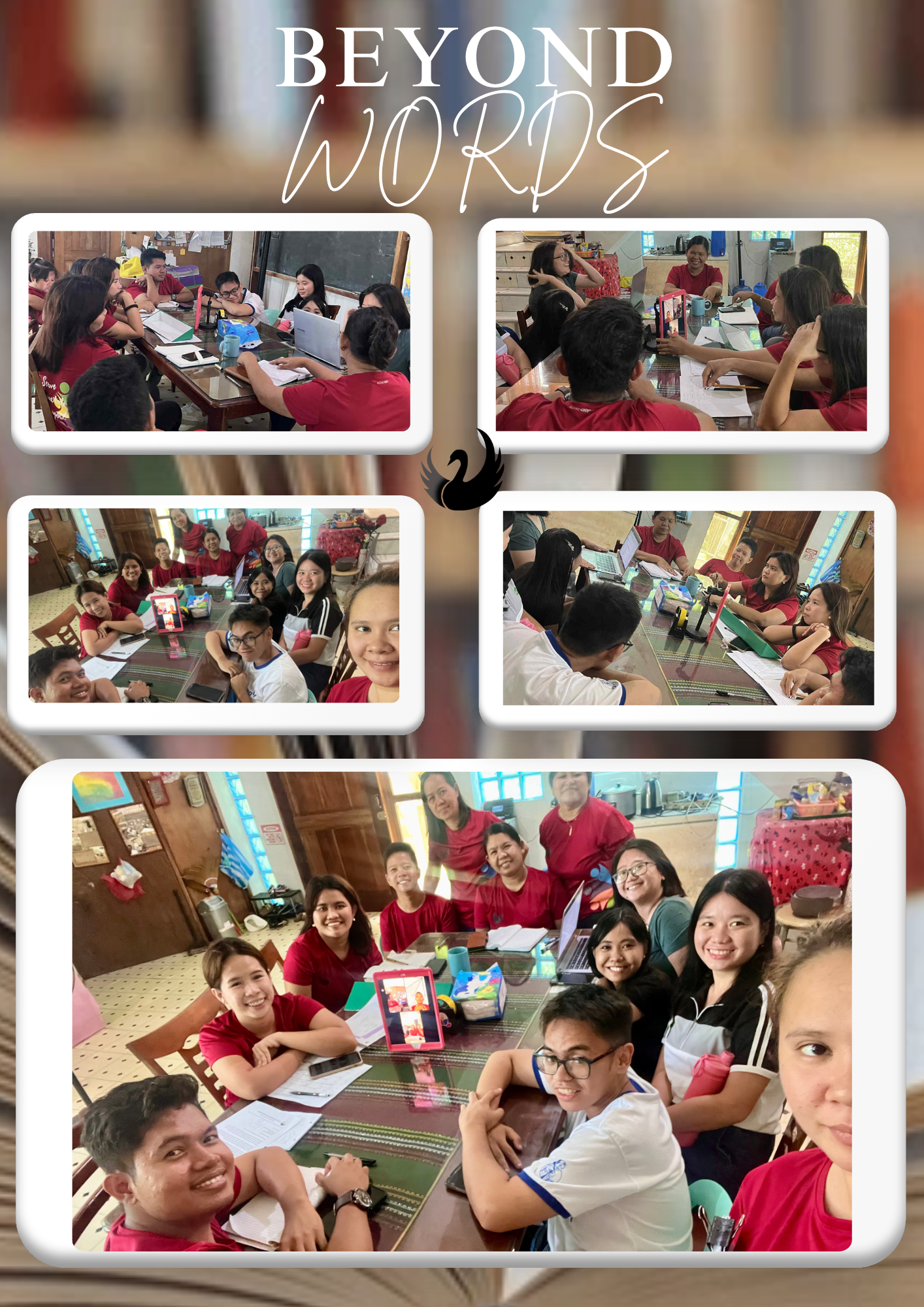It started quietly—three minutes of heart-breathing, the room slowing down to the rhythm of shared silence. Then, a prayer led by Atchmen. But this was no ordinary Monday at SEA. It was Buwan ng Wika, and words—Filipino words—took center stage.
One by one, voices carried meanings deeper than letters. Each word, chosen by each person, was not just a term but a fragment of soul. It was as if the language of the motherland had cracked open the collective heart of the team.
“Kapwa.” Cheryl began. A word so Filipino it has no direct English twin. She said, “Progress is not just for myself, but for all. Kapwa is the root of our identity. Without kapwa, there is no us.”
What is kapwa if not the quiet acknowledgment that your joy and your pain are mine too? In a world obsessed with individuality, kapwa is rebellion—gentle, profound, necessary.
Then came “Patuloy.” Anne spoke with calm strength: “Despite our personal problems… carry on.” Two simple words: carry on. How often do we forget the quiet heroism of persistence? In the face of storms, to keep walking is itself a prayer.
Mayang chose “Pagsubok.” Challenges. But she called them good challenges. Because what is SEA without its share of trials? Every trip to the community, every conversation with people—it tests, it stretches, it grows.
Responsibility had a name too—“Responsable.” Warren’s word. Spoken softly but firmly: “Even when no one sees me.” That is integrity: doing what must be done, in the room where no applause exists.
Makabuluhan. Malikhain. Paglalakbay. Significant. Creative. A journey. Words from Jean, Angela, and Leslie. Each word a chapter, each story a glimpse into a life that found meaning, art, and purpose on these winding roads.
Then “Tiwala.” Trust. Avha said, “Trust in God, in the process, in one another.” Trust is fragile but powerful. Without it, no bridge can stand—not between people, not between dreams and reality.
And then “Kalakasan.” Strength. Os admitted that his strength is constantly tested, that laughter has become his release valve, and faith his anchor. Because strength is not the absence of weakness—it’s carrying weakness with grace.
There was joy too—“Masaya,” “Maligaya.” Jannah and Trixie saw smiles even in exhaustion, in every barangay visit. Carlo spoke of “Paglago”—growth—because learning Hiligaynon in Iloilo was not just about language but about entering another world with humility.
And then, the harder words—“Pakikibaka.” Angelic’s word: struggle. A meaningful fight, she said, not for salary but for communities. Kurt spoke of “Hiraya.” A dream’s fruit—aspirations slowly ripening in the sunlight of service. Jackie brought “Pakikisama,” and Atchmen closed with “Pagbabago.” Change. For self, for community.
Reading these words together felt like opening a book—the unwritten book of SEA. A story stitched with trials, growth, laughter, trust, and an unrelenting faith that what they do matters—not just for themselves but for the kapwa they serve.
And maybe that’s the quiet magic of Mondays at SEA. It’s not just a meeting. It’s a mirror. A reminder that behind targets and timelines are people—breathing, hoping, struggling, and choosing, every day, to carry on.
Because at the heart of SEA is a truth so simple, yet so radical:
“Progress is not just for me. It is for all.”





Leave a Reply